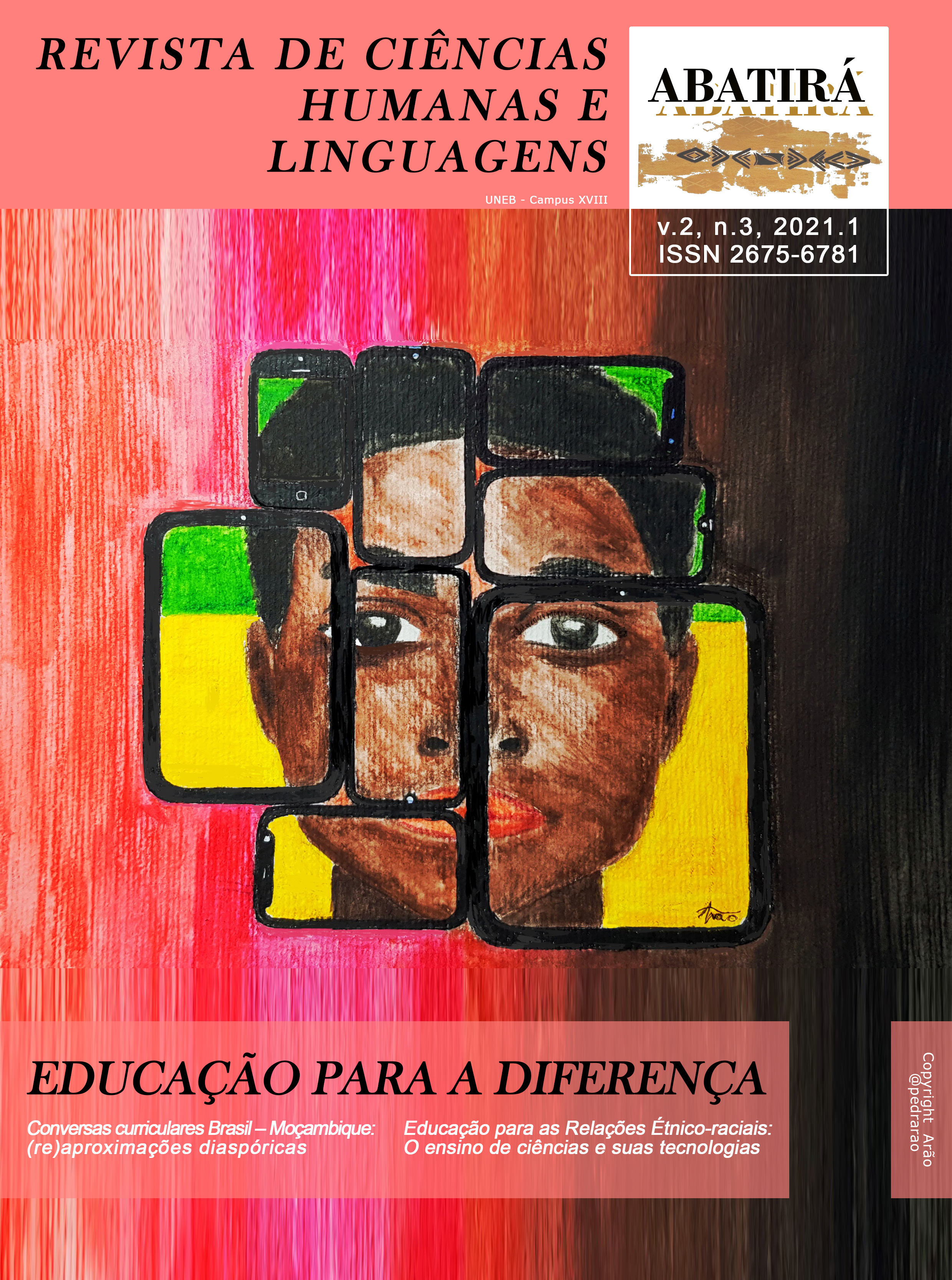Curriculum, difference and literature
Black authors rasuring curriculum production (a dialogue between Brazil and Mozambique)
Abstract
This article aims to highlight the curricular production and the porosity arising from the work with the narratives of black authors, in a dialogue between Brazil and Mozambique. Such analysis was motivated and supported by Laws 10.639/03 and 4/83 constituted in contexts of struggles for a post-colonial education. The laws establish, respectively, the obligatory nature of basic education, the teaching of Afro-Brazilian and African history and culture; The formation of the New Man, the eradication of illiteracy. Fundamental for a debate on difference, the determinations end up fixing a pre-given knowledge, worked out by outlining an a priori curriculum, precipitating identities. I start from the argument that instituted, normative and prescriptive curricula aim to control the proliferation of meanings and inhibit the production of difference. To analyze this position, I connect curriculum as culture and enunciation from the perspectives of Bhabha (2014) and Macedo (2011). I reaffirm that the idea of curricula as cultural enunciation in its different ways of presenting itself is a text in motion, and implies thinking about it as a production of meanings and beyond the normative and institutionalized. Based on this perspective, erasing the curriculum with the narratives of black authors, in basic education, is to put under suspicion the work with canonical literature and bet on the production of meanings in curricula and students.
Keywords: black authors; postcolonial; resume; difference; literature.
Downloads
Downloads
Published
How to Cite
Issue
Section
License

Este trabalho está licenciado sob uma licença Creative Commons Attribution 4.0 International License.Você é livre para:
Compartilhar - copia e redistribui o material em qualquer meio ou formato; Adapte - remixe, transforme e construa a partir do material para qualquer propósito, mesmo comercialmente. Esta licença é aceitável para Obras Culturais Livres. O licenciante não pode revogar essas liberdades, desde que você siga os termos da licença.
Sob os seguintes termos:
Atribuição - você deve dar o crédito apropriado, fornecer um link para a licença e indicar se alguma alteração foi feita. Você pode fazer isso de qualquer maneira razoável, mas não de uma forma que sugira que você ou seu uso seja aprovado pelo licenciante.
Não há restrições adicionais - Você não pode aplicar termos legais ou medidas tecnológicas que restrinjam legalmente outros para fazer qualquer uso permitido pela licença.





